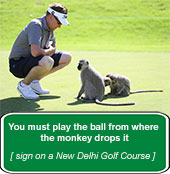April 15, 2023
"Acceptance"
[ For other months, see Notes from previous monthly meetings ]
Video of Dave's introduction and meditation (30 minutes)
Shown or mentioned in the introduction:
Hands Off the Controls (14 min) - Tara Brach (we watched 1st 5 minutes)
Serenity prayer:
“Grant me the serenity to accept the things I cannot change, the courage to change the things I can, and the wisdom to know the difference.”
Equanimity prayer:
“May I have the equanimity to accept my circumstances exactly as they are, the wisdom to know when a course change is appropriate, and the courage to intervene (or not) and move into the next moment with grace and intelligence.”
Acceptance here has to do with understanding that a course change, when warranted, will be most effective when we understand perfectly the current situation and accept that it is actually the way it is at that moment. This doesn’t mean that we like the current situation or that we give in to abuse, are passive in the face of danger, ignore our values, or give up when an obstacle gets in the way of achieving an important goal.
"Wu-wei" (Chinese term for "non-doing" or "doing nothing")
This sounds passive and inactive, but in Taoist philosophy, this is the most effective form of action - it is action without unnecessary effort, action which flows effortlessly, naturally and spontaneously from a place of inner stillness and in perfect alignment with body, mind, and heart. The full expression is “wu-wei er wu bu-wei” (which translates to: by non-doing, nothing is left undone). This kind of "non-doing" can be seen in a gifted athlete when they are "in the zone", or the "flow" state we experience when we are involved in an activity which requires a high level of concentration, but our experience is one of no effort and in which there is no sense of time
Also see:

- from Acceptance is not giving up, it is waking up by Liv Downing
Someone asked me, “Aren’t you worried about the state of the world?” I allowed myself to breathe and then I said, “What is most important is not to allow your anxiety about what happens in the world to fill your heart. If your heart is filled with anxiety, you will get sick, and you will not be able to help.”
Yes, there is tremendous suffering all over the world, but knowing this need not paralyze us. If we practice mindful breathing, mindful walking, mindful sitting, and working in mindfulness, we can try our best to help.
- from Thich Nhat Hanh's Facebook page
Compassion in action is paradoxical and mysterious. It is absolute yet continually changing. It accepts that everything is happening exactly as it [is], and it works with a full-hearted commitment to change. It sets goals but knows that the process is all there is. It is joyful in the midst of suffering and hopeful in the face of overwhelming odds. It is simple in a world of complexity and confusion. It is done for others, but it nurtures the self. It shields in order to be strong. It intends to eliminate suffering, knowing that suffering is limitless. It is action arising from emptiness.
- from Compassion in Action: Setting Out on the Path of Service by Ram Dass and Mirabai Bush
In meditation, we have a practice that quiets the mind, even in the midst of a fight, and allows us to see situations with clarity, as they truly are. Meditation is more than a mere respite; it truly is practice for everyday life. We start on the cushion, observing our thoughts and sitting with them to understand how they are poisoned by our own delusions. We then carry those meditative techniques into daily living so we can act with greater clarity and compassion.
- from "Don't Just Sit There, Act!" by Andy Hoover, Sep 2019 issue of Lion's Roar
In my early 20s, at my quarter-life crisis, I read “You can Heal Your Life” by the wonderful Louise Hay. To be honest, my life wasn’t sick and really didn’t need healing, but I was not happy and felt a sense that something was missing. So, I studiously did the daily affirmations in front of the mirror. I would stand in front of the mirror and recite “I love and approve of myself” daily, for months. I imagined the life I wanted to be living, but it continued to feel artificial, as though I was forcing something. Then in my early 30s and, having abandoned positive thinking and affirmations as hippy dippy stuff that doesn’t work, I threw myself wholeheartedly into the idea that actually, we don’t have to “do” anything. I went from one extreme to the other! I now worked with acceptance (still getting the hang of this one) and non-judgement (always a work in progress) and spent many hours observing my thoughts and emotions, without doing anything in particular about them; all in the name of building my self-awareness. Then one day, this process of non-doing backfired. I had stopped actually listening to my intuition, my values and my heart and was just coasting along in a never-ending haze of acceptance.
As it turns out, we need both. We need both intention and attention. It is helpful to have a clear view of where we are going and what really matters (intention) but we also really need to stop and reflect on where we are first (attention). If all we do is manifest – we are never truly happy now, if all we do is sit contentedly in the now without assessment – how do we really grow?
- from It's Both by Liv Downing



